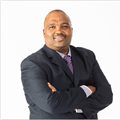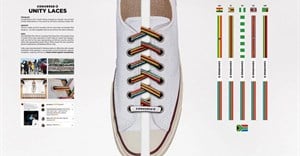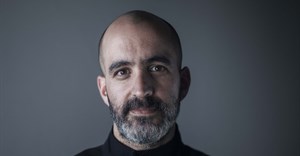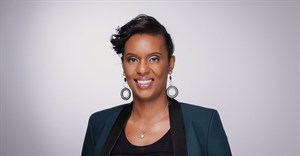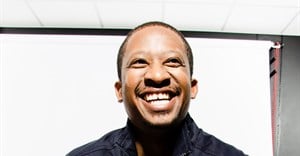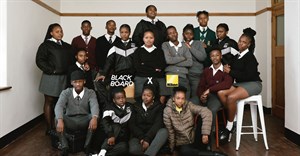Trending
Elections 2024
Jobs
- Digital Marketing Manager Cape Town
- Editorial Intern - African Insider Cape Town
- Marketing Strategist: Media Cape Town
#Newsmaker: Gugulethu Mhlungu, Careers Magazine's new editor
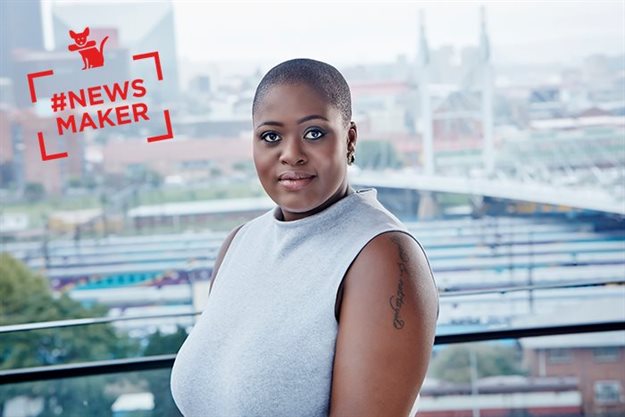
Mhlungu has often lended her voice to issues that affect young people, including economic inclusion, gender-based violence, unemployment, climate change and politics. “Careers Magazine presented an exciting opportunity for me to continue to drive the narrative of young people’s welfare. Often young people are spoken down to, spoken about but almost never consulted on matters that involve them. Young people are the majority and I hope we can make Careers an indispensable resource for us by us,” she says.
Until recently, Mhlungu was the deputy editor of Bona Magazine and before then a host of a week-daily morning news programme and former talk radio presenter. She holds a Bachelor of Arts in Journalism & Media Studies and Anthropology from Rhodes University as well as a Post Graduate Diploma in Media Management. At 21 she was the youngest station manager in South African broadcast history when she was made the station manager of Rhodes Music Radio. Part of her career has included being a City Press lifestyle editor, a National Arts Festival/Business Art SA award winning writer and working with YouthLab, a platform for young South Africans to become active participants in all spheres of civic life.
Congrats on your new role at Careers Magazine. How do you feel about it?
It’s kind of the feeling one gets before a roller coaster gets going. I am both excited and nervous. Excited that despite the hardships the magazine and print industry has faced in general, there is a real need and place for good, thoughtful content for a youth brand like Careers Magazine. Nervous at the advent of this new journey but I believe a healthy dose of nerves is both good and normal at the start of a new thing.
What does the role entail?
I am responsible for the overall editorial focus of the magazine which means every word, every comma, every picture needs to (hopefully) be just right for all our platforms, i.e. the print magazine, the website and our social media platforms. I’m joking (only kind of). In addition to the editorial, a large part of an editor’s job is about staying informed, on top of trends and up to date with what matters to our readers and thinking about how we create and produce information that reflects that. Of course, equally important, is all the aforementioned has to work towards making the magazine successful, it is a business after all.
Comment on the current state of the industry, how the industry has responded to Covid, and how you plan to navigate the magazine through this.
I think the print industry was already facing tough conditions long before Covid and the immense socio-economic disruptions that come with a pandemic just exacerbated the challenges. When I was studying for my post grad in media management, one of the things we were repeatedly told was that the world of work we were trying to study for would probably not exist by the time we graduated. When I was still in newspapers there were deep questions about what the role of print in the near and distant future would be.
Under the circumstances, I think the industry has done the very best it could have done.
What happened to print entities this year had less to do with 2020 than historical questions around how costly the medium is (both production and distribution) in a country with stagnating growth, rising poverty, unemployment and inequality.I hope we are able to create and produce a product that makes sense and is of value for where we are right now and wherever our readers find themselves.
And tell us more about the issues that affect young people, such as economic inclusion, gender-based violence, unemployment, climate change and politics. How has Covid affected some of these and where does Careers Magazine fit in here?
SA has an average of 27 so when we speak about the issues of slow growth, of poverty, of unemployment we are actually speaking about the ways in which this affects young South Africans because that is who is the majority of the population. All of SA’s issues are youth issues; name it and it probably affects young people most acutely. SA is also a majority female country so again poverty pops up. We should be speaking about the ways in which black poor women remain the face of poverty in this country. The impact of Covid-related job losses, of rising hunger are absolutely gendered so we can’t speak about those things without centring them around young black poor women.
I hope that Careers Magazine can be a useful guide for navigating the world, and a platform where we figure it out together with and as young people.
What do you love most about your career and the media/publishing industry?
The ability to contribute to a democracy, which is the real and important role of media. Yes, media gives you the opportunity to do cool, interesting stuff but we play such a critical role in enabling or stifling democracy (as we’ve seen over the years with the impact of media houses and social media platforms and their impact on democracy and public discourse).
Tell us a bit about your experience and how this has equipped you for your new position.
I’ve been lucky in that I’ve been able to work in radio, in television, in newspapers and in magazines as well as stakeholder engagement so I bring an understanding and experience in more than just magazines and/or social media which is increasingly important for the print industry. Media is now intertwined.
I have two qualifications from Rhodes University, including a Bachelor of Arts with a specialisation in TV and a post grad diploma in media management so I have studied journalism and media studies which has been one of the greatest privileges of my career and life in general. I also read voraciously which is I think is hugely important for anyone working in media. It’s super important to read the research, the books, the court documents, the reports, and watch the documentaries, so I’m always reading and learning. I am also a young black woman in SA so I also bring my lived experiences, which I think are important.
What are you most looking forward to (at Careers / in your new role)?
To do really good and impactful work, and to highlight as many voices as possible from as many parts of the country as we can through our platforms. There is a great concentration of news and reporting on Gauteng, Western Cape and to some degree KZN, which makes sense because in terms of numbers that’s where people are but I always think we do ourselves a disservice by not at least trying to do work that’s about outside of the ‘big’ provinces.
What’s at the top of your to-do list?
Extending the reach of this beautiful publication.
What are you currently reading/watching/listening to?
I’ve got my hands full, it’s quite a list. I’m currently reading edits for my book which is due out in 2021, Adults in the Room by former Greek finance Minister Yanis Varoukis, All about love: New visions by Bell Hooks and I recently bought The Meaning of Mariah Carey by Mariah Carey after I watched her AppleTV interview with Oprah.
I’m listening to Made in Lagos by Wizkid, Danko! by Samthing Soweto, Girls Eats Sun by Hope Tala and lots of Amapiano.
Tell us something about yourself not generally known?
I don’t think there’s very much that’s not known about me, especially after my time on talk radio which requires that you share quite a bit about yourself. But if I had to guess I would say people don’t know that I want to be a nature conservationist at some point in my life. Steve Irwing is one of my heroes and I think we cannot do enough for the natural world especially given the immense impact humans have had on it.









